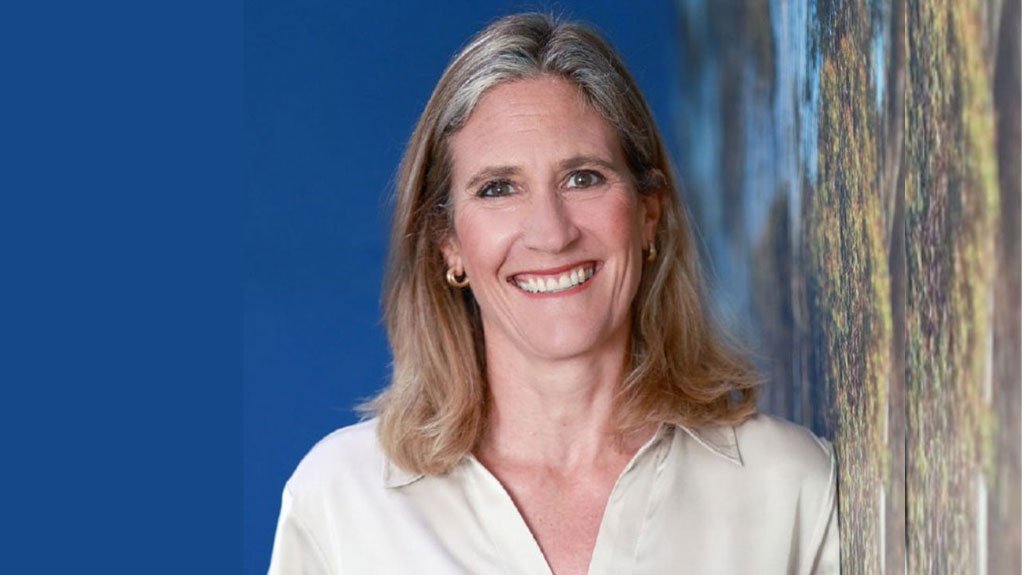Incentives needed to drive innovation to improve local waste management
The South African government needs to offer subsidies that support innovation in the local waste management sector but also incentivise recycling by increasing the cost of waste disposal at landfill and/or by introducing a landfill tax to address the country's waste problem.
Because of regulations and the higher costs associated with waste disposal at Europe’s landfills, producers are discouraged from using landfills. In addition, the subsidy from government makes the recycling and reuse of waste more sustainable and commercially viable, says waste management company Interwaste marketing director Kate Stubbs.
“The recycling and refuse-derived fuel models introduced in Europe are only successful because there are subsidies from government. The recycling and reuse of waste does not come at zero cost.”
Not only are producers attempting to drive up the cost of recycling and or reuse by expecting financial compensation for their waste, as it is deemed a resource, but there is also a cost associated with its collection, transportation and processing.
Stubbs highlights that there is a great opportunity for the private sector to invest in the waste sector, but also for public–private partnerships and collaboration.
“Waste is quite complex, and there's no silver bullet to addressing waste problems. So when considering potential for collaboration and investment in new technologies to process waste, there's definitely opportunity. But there's greater opportunity if the private sector partners with government.”
While South Africa’s National Environmental Management: Waste Act, No 59 of 2008, is a solid piece of legislation, it is still considered new, and compliance is lacking, notes Stubbs.
Consequently, of the about 122-million tons of waste produced by South Africans a year, only 10% is recycled.
here are multiple factors influencing legislative compliance – a lack of education and understanding, funds, policy enforcement, prosecution and penalties, and transparency, owing to limited available data – especially at a municipal level.
Data Deficit
It is considerably difficult to access accurate data on the efficacy of South Africa’s waste management, compared with the data that is available on the country’s water quality, wastewater treatment plants and water leaks through the Blue, Green and No Drop reports, states Stubbs.
“There are reporting systems in place, namely the South African Waste Information System, but the data is not consistent. The way forward is to obtain more reliable data on waste to understand the current state of waste management and inform more strategic planning.”
Unfortunately, waste management is often lower in terms of priority at municipalities. There may be every intention of delivering good service but local waste management services are competing against the country’s water and electricity crises for budget.
“Therefore, some plans often don’t receive the funding they deserve, preventing investment in the infrastructure needed to support legislative changes, for example,” highlights Stubbs.
A lack of knowledge and expertise at municipalities is also obstructing planning to address current and forthcoming service delivery challenges, such as those associated with failing to invest in landfills for imminent use.
On average, it takes seven year s to develop a new landfill site in South Africa, notes Stubbs.
In Gauteng, the Tshwane, Ekurhuleni and Johannesburg municipalities have significantly little space left in their landfills. A rise in dumping is prevalent as a consequence, impacting negatively on the country economically, socially and environmentally.
Even the City of Cape Town (CoCT) municipality, which is largely considered South Africa’s most efficient municipality, only has two government operated landfills and one private landfill. Stubbs adds that the CoCT spends about R500-million a year to clean up illegal dumping.
Encouragingly, South Africa is introducing good strategies to reduce waste to land-fill, with the latest policy – the Extended Producer Responsibility regulation – assigning producers the responsibility for the end-of-life of products post consumer use.
“There's certainly a lot of positive momentum in the policy space. We just need to ensure that we take everyone with us on that journey. However, there are costs involved in enabling the necessary change. So long as it's still cheap and accessible to dump, either illegally or at a low cost at landfills, some of that change won't take place,” believes Stubbs.
Contact details:
Tel: +27 11 323 7300
Email: info@interwaste.co.za
Article Enquiry
Email Article
Save Article
Feedback
To advertise email advertising@creamermedia.co.za or click here
Press Office
Announcements
What's On
Subscribe to improve your user experience...
Option 1 (equivalent of R125 a month):
Receive a weekly copy of Creamer Media's Engineering News & Mining Weekly magazine
(print copy for those in South Africa and e-magazine for those outside of South Africa)
Receive daily email newsletters
Access to full search results
Access archive of magazine back copies
Access to Projects in Progress
Access to ONE Research Report of your choice in PDF format
Option 2 (equivalent of R375 a month):
All benefits from Option 1
PLUS
Access to Creamer Media's Research Channel Africa for ALL Research Reports, in PDF format, on various industrial and mining sectors
including Electricity; Water; Energy Transition; Hydrogen; Roads, Rail and Ports; Coal; Gold; Platinum; Battery Metals; etc.
Already a subscriber?
Forgotten your password?
Receive weekly copy of Creamer Media's Engineering News & Mining Weekly magazine (print copy for those in South Africa and e-magazine for those outside of South Africa)
➕
Recieve daily email newsletters
➕
Access to full search results
➕
Access archive of magazine back copies
➕
Access to Projects in Progress
➕
Access to ONE Research Report of your choice in PDF format
RESEARCH CHANNEL AFRICA
R4500 (equivalent of R375 a month)
SUBSCRIBEAll benefits from Option 1
➕
Access to Creamer Media's Research Channel Africa for ALL Research Reports on various industrial and mining sectors, in PDF format, including on:
Electricity
➕
Water
➕
Energy Transition
➕
Hydrogen
➕
Roads, Rail and Ports
➕
Coal
➕
Gold
➕
Platinum
➕
Battery Metals
➕
etc.
Receive all benefits from Option 1 or Option 2 delivered to numerous people at your company
➕
Multiple User names and Passwords for simultaneous log-ins
➕
Intranet integration access to all in your organisation




















